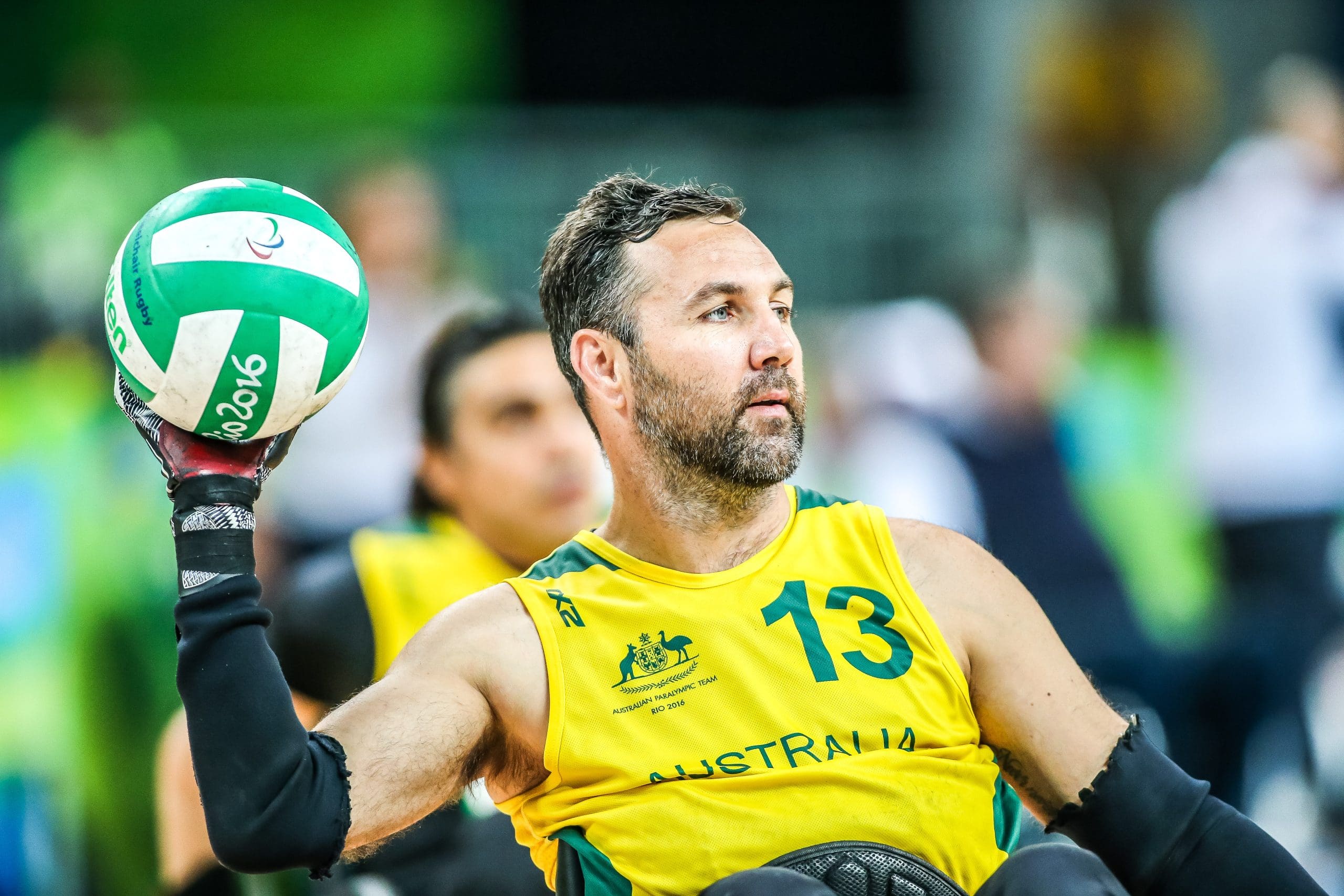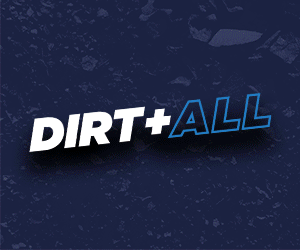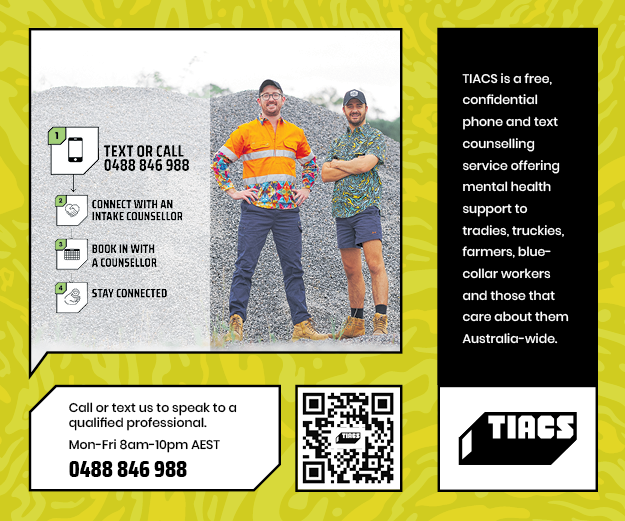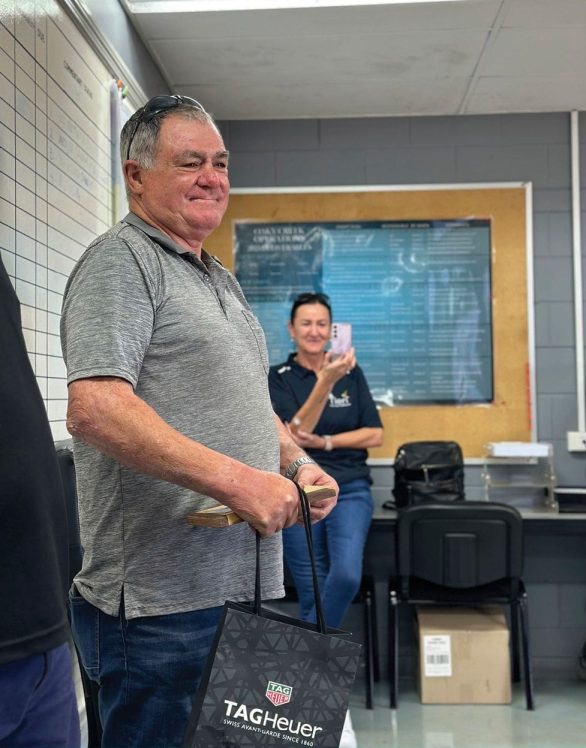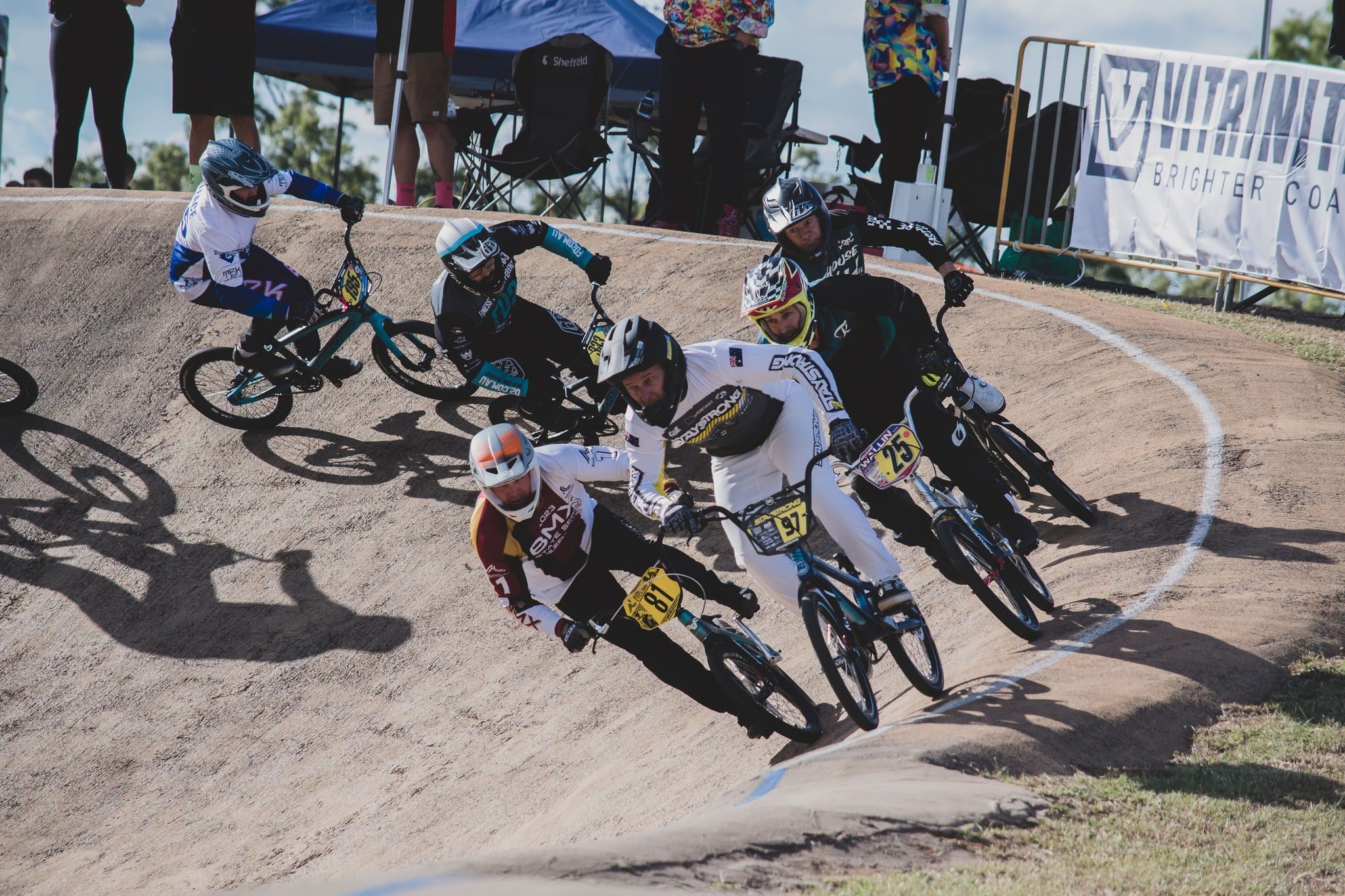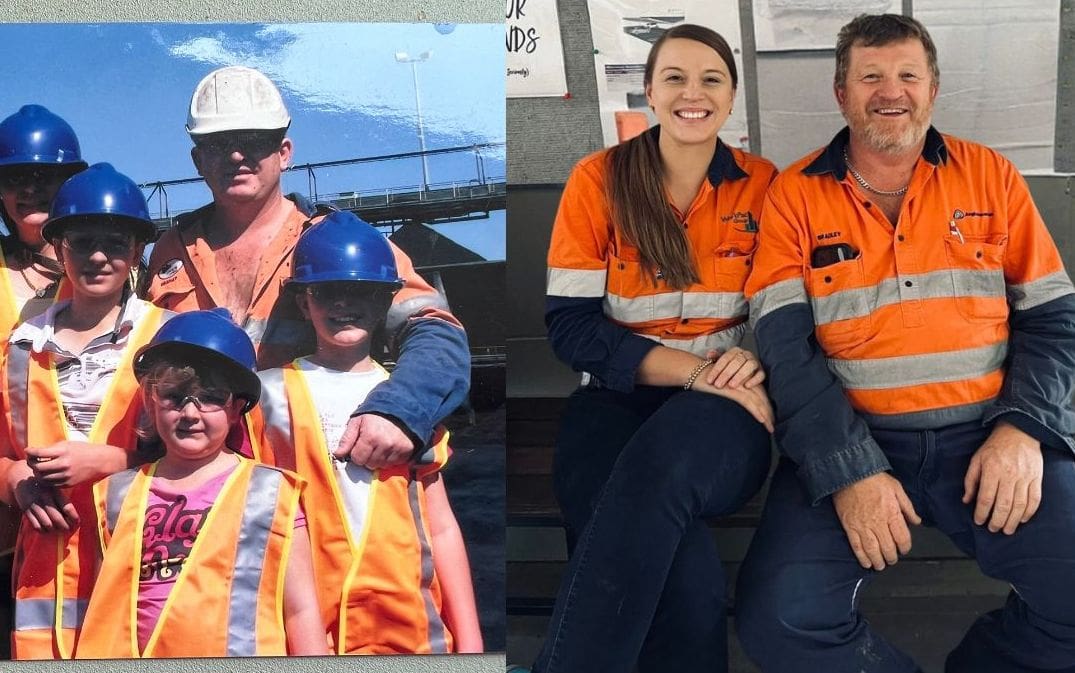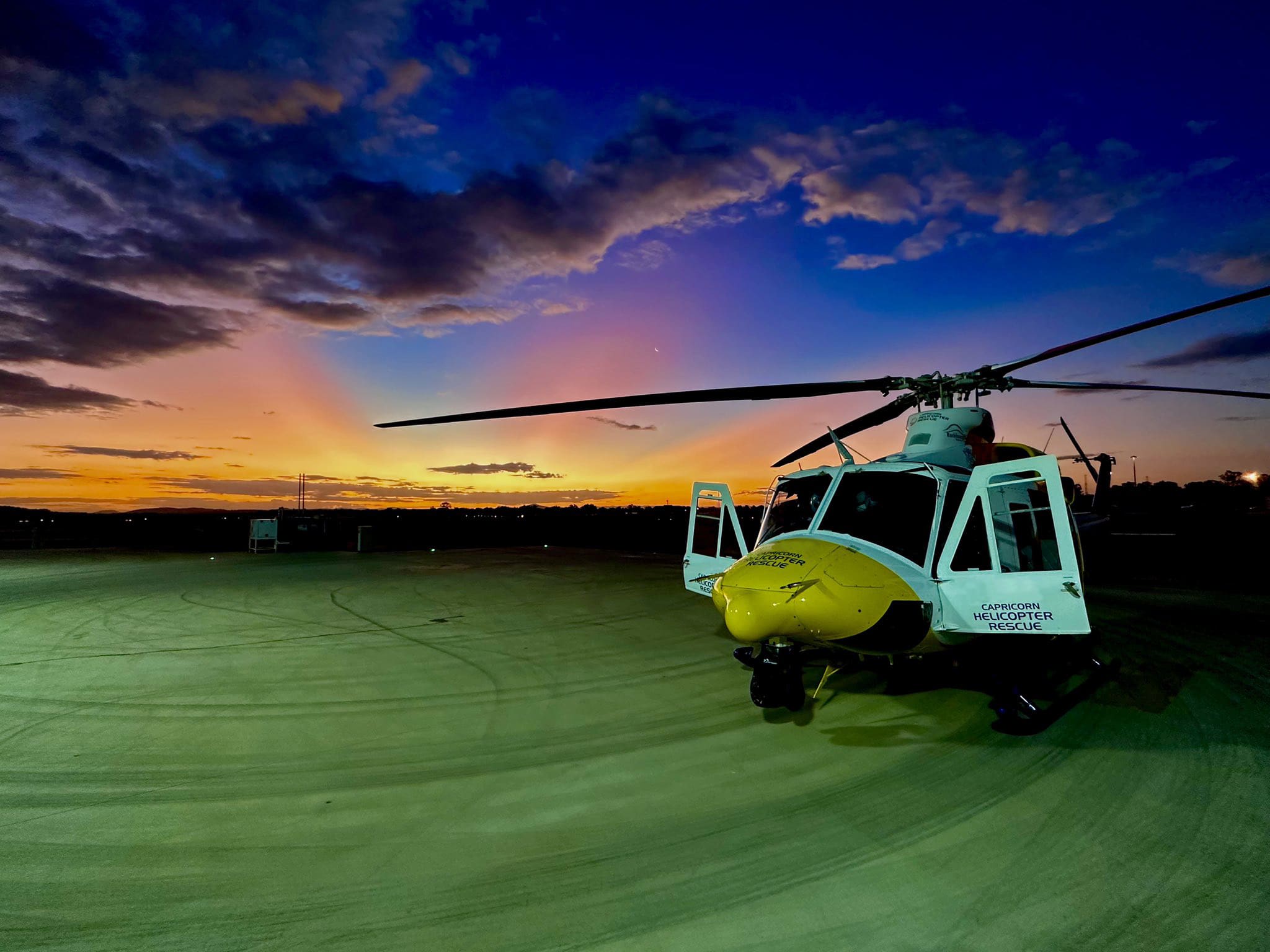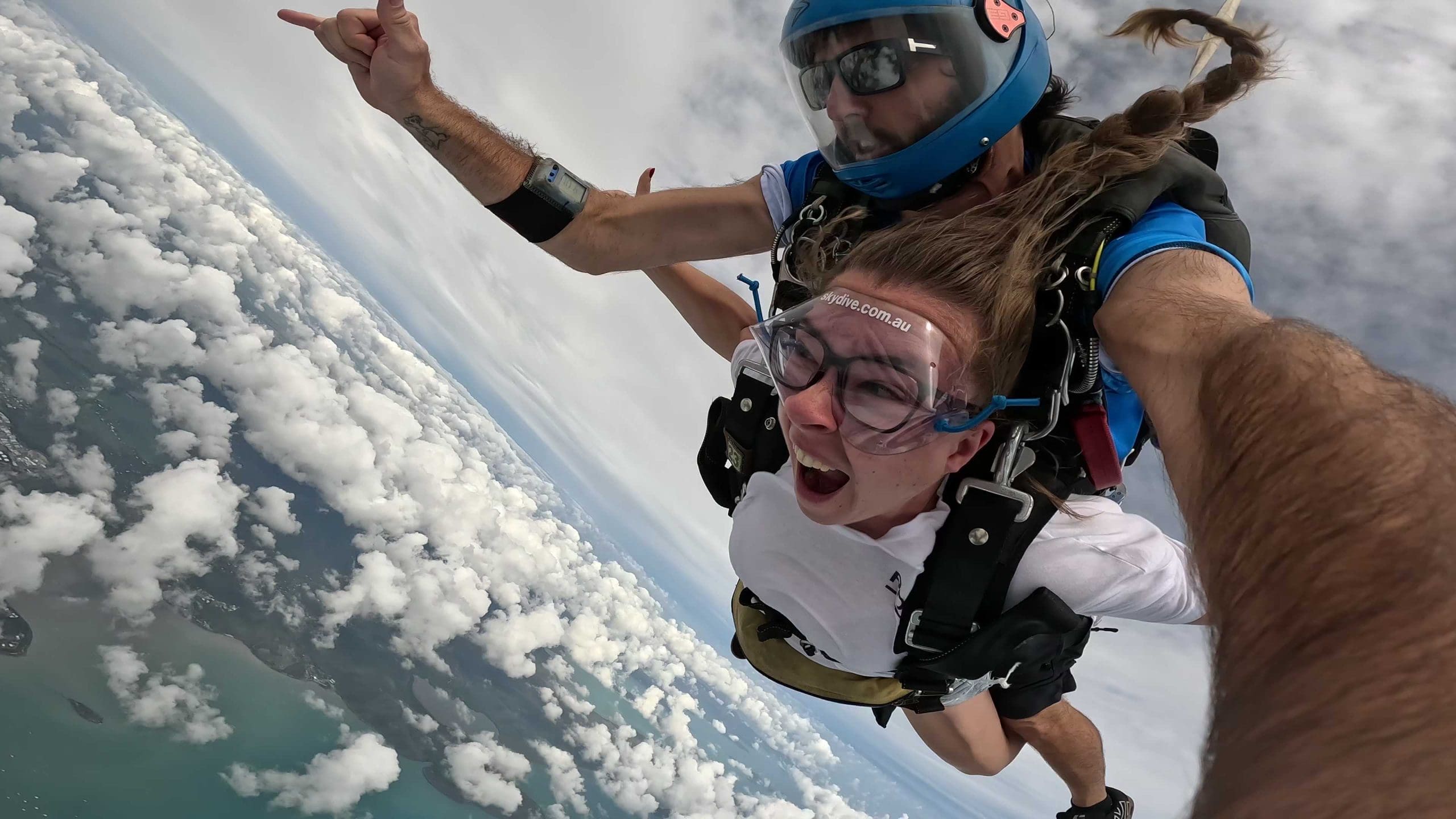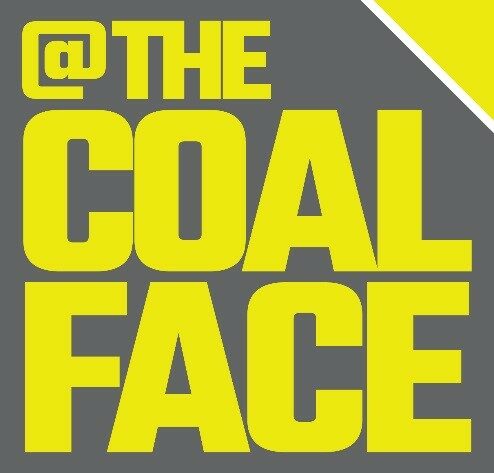Cameron Carr had a promising career in rugby league ahead of him until a car crash changed the trajectory of his life. Dark days followed until Cameron turned to rugby again, this time achieving success beyond his wildest dreams… in a wheelchair.
Cameron grew up as the son of a State of Origin star. His dad Norm Carr played rugby league in Brisbane for Western Suburbs and Souths, and he was the last captain of Queensland before it switched to State of Origin in 1980. He retired in 1986, but Cameron said most of his childhood revolved around the sport.
“As a kid, you’re going to all those games every week. Because your dad is part of the team, you’re going into the dressing rooms and hanging out with the players. I just assumed that’s what you did.
“I was nine when I started playing rugby league. It took me a while to wear down dad to go and play because he was still playing at the time. My parents were working full-time and the training wasn’t like it is now, it was maybe through three or four times a week.
“I loved the team aspect. I also just loved the physicality and the mental side of competing against one another.”
Cameron played all his junior football with Souths Sunnybank, which also happens to be the same club Johnathan Thurston came through. At age 18, he signed a contract with the Sydney Roosters and on the day he was all set to drive down to join his new team he got a call informing him he would instead be flown down two weeks later.
That call changed everything.
The following week on November 3, 1996, Cameron went to a 21st birthday party. Leaving early, he got a lift home and just 100m from his house the driver fell asleep. Cameron’s life changed in that instant.
“I broke my neck. I was in hospital for six months where I was in this little bubble surrounded by people all going through the same thing.
“It wasn’t until I went home and then had to fit in with the wider society that the reality of the situation really kicked in. You’re trying to fit back into the circle of friends and the life that you’re living six months prior.
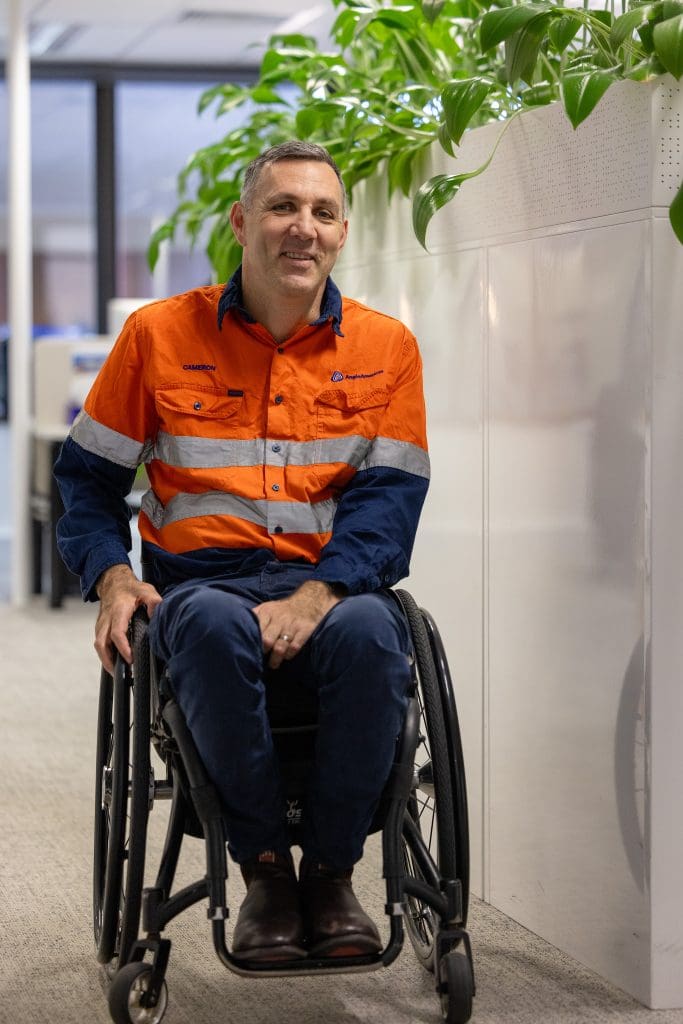
“It took me a long time to come to terms with what had happened. I don’t know if I will ever reconcile what happened with my planned future. You’ve got your physical challenges, but when you’re left alone and your mind starts wandering, that for me was the biggest challenge.”
Eventually, Cameron moved out into his own place and began to slowly transition to his new life. Then one morning he had an epiphany.
“I probably spent the best part of five years just wallowing in self-pity; just waiting for someone to return and go ‘Sorry mate I got the wrong person, here’s your old life back, continue on’. Then one day I woke up and I was like ‘what the hell am I doing?’ No-one was going to give my life back. I was 24 and I realised I could control something and that was getting more active again.”
That’s when Cameron’s wheelchair rugby journey began.
“From the first night, I went down just to concentrate on me and to get fit. As soon as I went in, it was like the wheelchair had disappeared.
“It was a bunch of guys all going through the same thing, it was like a peer support group. When I came home, I didn’t get a handbook of ‘here’s what to do now with your life with a spinal cord injury’; it’s just all pure guesswork. All my friends were able-bodied, so they had no idea.
“So going down there and just having this wealth of knowledge and seeing guys travelling the world playing sport was eye opening.
“There was no one on TV representing people like me but suddenly I could see a whole new future for myself. I found wheelchair rugby had a lot of parallels and similarities in terms of people just competing and wanting to win. It allowed my competitive streak to shine and I could see a pathway forward.”
That pathway led Cameron to become one of the most accomplished athletes in wheelchair rugby. His first trip away was in 2005 with the national team to South Africa and he had his first Olympic appearance in 2008 at Beijing.
“We had some really tight games and so we were probably pretty fortunate to get silver against the United States in 2008. We went to the World Cup two years later and the US beat us again, but things had started to change in terms of our mindset, our focus and performance and in London things started to click into place. We won in London in 2012 and then again in Rio in 2016.”
While wheelchair rugby took up most of Cameron’s time during those years, he also had his own mentoring business. The Paralympic committee had a relationship with iCare workers insurance and Cameron would help people who had suffered traumatic injuries with goal setting or getting back to work.
“I always knew I needed to have something else besides my sporting career. I studied clinical exercise and physiology as well as dietetics because I wanted to learn how to best prepare myself food and exercise wise. But ultimately, I realised you need a really strong base in psychology for any of this to work. I still liked the physical side though, so I took on a double degree in psychology and exercise movement science.
“I was doing a little bit of guest speaking and I had my own business where I’d consult with organisations about building teams, but I really wanted to have a bit more of an impact.
“When you’re competing as a disabled athlete, everyone’s great about it. But then you come into the real world and it’s like ‘oh you’re in a wheelchair’. There’s an unconscious bias. I applied for multiple jobs and would tell them about my degrees and lived experience, but they would tell me to go away and get experience.”
Cameron said it felt like the system had been designed for him to fail. How can you get experience when you can’t even get a start?
“In 2019, I got an interview with Anglo American. I didn’t even tell them I was in a wheelchair before I turned up. They still hired me.
“They encouraged me to come in as a 42 year old graduate with no prior mining experience so I could observe how a corporate organisation works as I learned to integrate my training and lived experience.”
Moving into a corporate career from a sporting career has its challenges. Cameron had to learn and adapt to a new role, a new environment, new people, all in an industry he wasn’t familiar with.
“My son is 12 and my twin girls are 8. I give credit to my wife for supporting me and our family during this transition as it wasn’t easy. It really came down to having the right support in place and staying focused.
“Many of the skills I learned on the sports field have also been transferable. Being prepared. Knowing the capabilities of your team. Collaboration, respect, communication as well as resilience and adaptability are all critical. Fortunately, human behaviour is the same no matter what industry, so it’s been easy to transition the leadership skills over.”
Cameron is now a Workplace Support Specialist, helping to manage the Anglo American’s Workplace Support Program and Trauma Informed Workplace Support Unit. His job involves managing intersectional psychosocial hazards and risks including complex management of bullying, sexual harassment, discrimination including domestic violence.
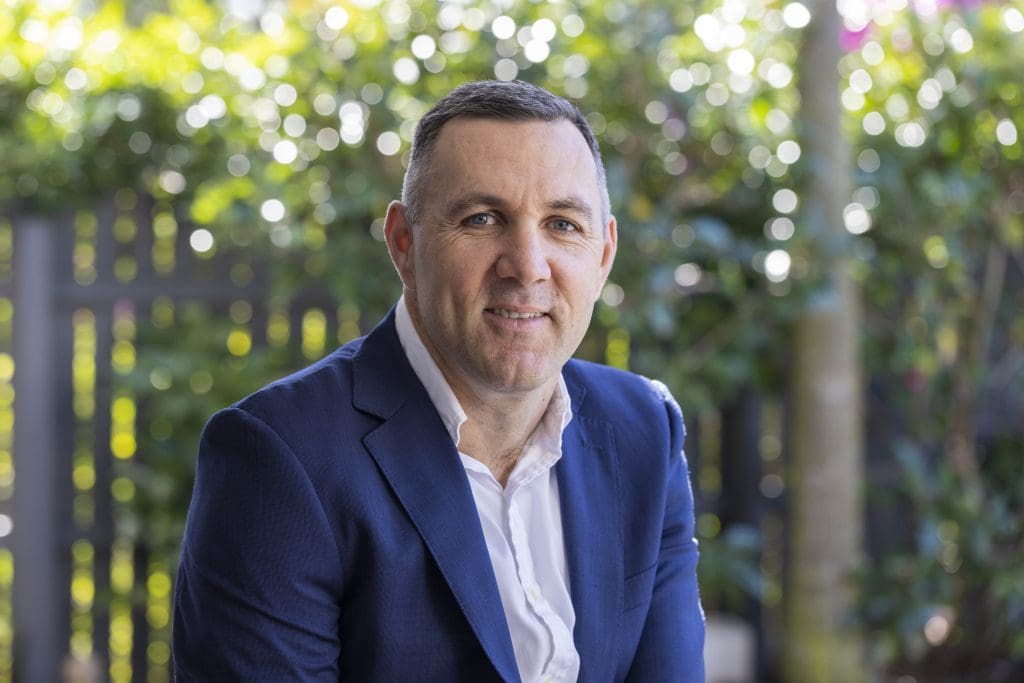
“We also have the first of its kind Trauma Informed Support Unit to help our diverse workforce and leaders. It’s end-to-end early intervention, prevention, support, recovery and promotion where we educate to build capability, risk manage, provide technical and legislative guidance, coaching to include mediation and case management. It’s about ensuring we have an inclusive and safe working environment for all our people built on care and respect.
“I’m also three quarters of the way through my Masters in Leadership and moving forward I really want to focus on the capability of our leaders and managing teams within the industry. I love working with leaders to help their teams to perform well as they are critical in influencing outcomes, particularly workplace culture and the employee experience.”
Cameron said while companies were slowly changing to include equity into their inclusion and diversity programs, he still found the ‘equity’ part was quite challenging for businesses.
“We’re doing a better job of attracting diverse groups of people into Anglo American and recognising the richness that diversity brings, but I think there’s still a way to go in terms of disability representation within the industry.
“I went to the WIMARQ International Women’s Day lunch this year and it was inspirational to see 1,300 people championing the cause of women. It brings me comfort as a father of my twin girls that there is a place in the industry for them if they choose it.
“We have come a long way but more needs to be done. I could only see one wheelchair and I was in it so that tells me we need to be more inclusive of the diverse range of people in our industry and I want to champion that change.”

